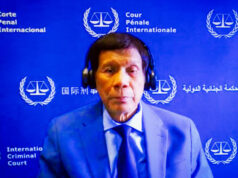Duterte signs law on simulated birth records
By Arjay L. Balinbin, Reporter
President Rodrigo R. Duterte has signed a law that grants amnesty to those who simulated birth records and allows rectification of such records through a simplified adoption process.
Malacañang released on Thursday a copy of Republic Act No. 11222, or the “Simulated Birth Rectification Act,” which Mr. Duterte signed on Feb. 21.
Simulation of birth records, according to this law, refers to the “tampering of the civil registry to make it appear in the record of birth that a child was born to a person who is not such child’s biological mother, causing the loss of the true identity and status of such child.”
The new law grants amnesty and allows rectification of the simulated birth of a child “where the simulation was made for the best interest of the child, and that such child has been consistently considered and treated by the person or persons who simulated such birth as her, his, or their own daughter or son.”
Also, one of the major objectives of this law is “to exempt from criminal, civil, and administrative liability those who simulated the birth record of a child prior to the effectivity of this Act: Provided, That a petition for adoption with an application for the rectification of the simulated birth record is filed within ten years from the effectivity of this Act.”
Hence, this law provides for and allows a “simpler and less costly administrative adoption proceeding where the child has been living with the person or persons who simulated her or his birth record for at least three years before the effectivity of this Act.”
Senator Risa N. Hontiveros-Baraquel, the principal sponsor of the bill, said in her sponsorship speech: “To remedy the problem of a lengthy and financially restrictive adoption proceedings, this bill likewise proposes a simpler and less costly administrative adoption process without compromising the safety and integrity of the child.”
The Senate Bill 2081 was introduced by Senator Mary Grace Natividad S. Poe-Llamanzares.
In a press release, Ms. Poe was quoted as saying: “It is also in the best interest of the parents and the children to have the records rectified for possible future uses such as medical or DNA purposes or for other legal matters.”



